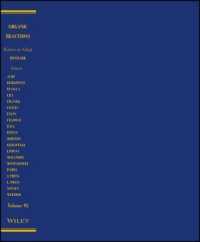- ホーム
- > 洋書
- > 英文書
- > History / World
Full Description
Internationalist socialism and ethnic nationalism are usually thought of as polar opposites. But for the millions of men and women who made Social Democracy into twentieth-century Europe's most potent political force, they were often mutually reinforcing. Workers and Nationalism explains this apparent paradox by looking at the history of the Social Democratic workers' movement in Habsburg Austria, which was built on the mobilization of German and Czech workers in the Empire's rapidly industrializing regions of Bohemia, Moravia, and Lower Austria. Jakub Beneš takes the history of socialism out of the realm of theoretical and parliamentary debates and into the streets, city squares, pubs, and clubs of a vibrant but precarious multi-ethnic society. He reveals how ordinary workers became increasingly nationalist as they came to believe that they were the genuine representatives of their ethnic national communities. Their successful campaign to democratize parliamentary elections in 1905-1907 accelerated such thinking rapidly. It also split Social Democracy apart by 1911. Then, during the First World War, many Czech and German workers embraced revolutionary radicalism, alienating them from the regime-friendly socialist leadership. Beneš's study is the first to show the profound connection between major political events and the rich culture of the Austrian workers' movement, revealing this culture's utopian and quasi-religious tendencies as well as its left populist nationalism. Based on research in eight archives and numerous libraries in Prague, Vienna, and Brno, Workers and Nationalism fundamentally rethinks the relationship between socialism, nationalism, and democracy in modern Europe.
Contents
Introduction: Socialism, Nationalism, and Democracy
1: Narrating Socialism in Habsburg Austria
2: Exclusion from the Nation
3: Storms of November
4: Socialist Hussites, Marxist Wagnerians
5: The Logics of Separatism
6: War and Revolution
Conclusion: Ideology and Utopia








